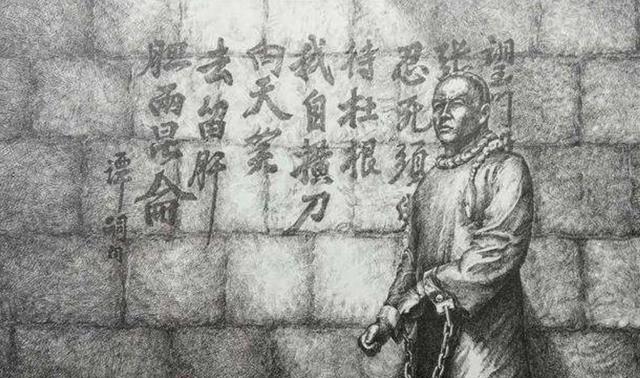"Try to prepare for the present moment, and the land that has been cut does not need to be discussed. Yidang sold Xinjiang to Russia and Tibet to England to pay off the arrears of 20,000 yuan. With the strength of tens of thousands of miles in the two realms, my strength can not be defended in the end, and it is a burden for me, and the sale is not only worth twenty thousand, but it can still be used for changing the law, and ask Britain and Russia to protect China for ten years. Tan Sitong was too naïve and pinned one of his hopes for the success of the reform on Britain and France.

Tan Sitong wrote to the Guangxu Emperor further arguing that the western region was of little significance and that it was better to sell it, which was similar to the reason why Li Hongzhang opposed Zuo Zongtang's recovery of Xinjiang, except that Li Hongzhang did not propose to sell the western territory. In addition to Tan Sitong, Kang Youwei also advocated selling Tibet and Xinjiang. Sun Jianai, a major minister of the late Qing Dynasty, once asked Kang Youwei in person, "How to raise funds for changing the law?" ”
Kang Youwei replied directly: "No worries, England covets Tibet and cannot get it, and if the imperial court is willing to abandon this deserted land, it will be good to get a good price for the New Deal, and it is not difficult." It is difficult for people to understand that Kang Youwei and Tan Sitong actually advocated the sale of a large part of the northwestern territory, fortunately, the time for the Wushu reform law was very short, and the idea of the two people to sell land was not adopted by the Guangxu Emperor, otherwise China would lose millions of square kilometers of territory.
Historians say that the reason why Tan Sitong thought of selling Tibet, Xinjiang and other places may have a lot to do with his anti-Manchu ideology. According to the preface to the Tan Si Tong Shu Jian compiled in 1940, "it can be seen that the propositions in his bones are different from those of the royalists. He regarded the use of Guangxu to carry out the New Deal, but he regarded it as a temporary means. ”